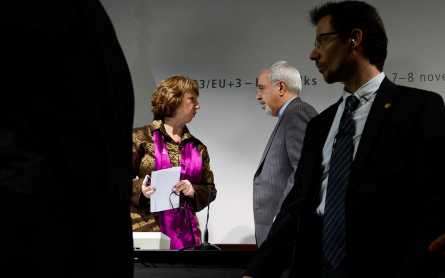Interventionists Attempt to Isolate Rand Paul Over Iran Deal

At The American Conservative, W. James Antle III has a shrewd, pessimistic take on how GOP opposition to the Iran nuclear deal threatens to isolate intervention-skeptic Sen. Rand Paul (R-Kentucky):
The most hawkish conservatives follow a simple script: Obama is an apologizing appeaser while Republicans are the muscular party of Reagan and anyone to the right of Jimmy Carter. That narrative is complicated by the fact that they often side with the Obama administration—when they aren't divided among themselves—against the rest of the right on military interventions and civil liberties questions.
Iran brings the foreign-policy debate back to the hawks' comfort zone. The Iranian ayatollahs have been villains since at least the 1979 hostage crisis, much longer than Saddam Hussein was so perceived before the Iraq war. As a state sponsor of terrorism, it is not an undeserved reputation. […]
Republican lawmakers, aided by Democrats like New Jersey Sen. Robert Menendez, are insisting on zero enrichment as a condition for relaxing any sanctions against Iran. Some would even like to authorize the use of military force. There are no partisan or opportunistic reasons for any Republican to resist such legislation.
In the Senate, Rand Paul—who has supported some sanctions—may be alone. If he decides to push back against Marco Rubio, John McCain, and Lindsey Graham this time around, it's hard to envision Ted Cruz or even Mike Lee joining him.
Whole thing here; Antle's 2010 Reason profile of then-candidate Paul here.
Interventionists recently seen stomping on Paul's Iran positioning include longtime critics Jennifer Rubin at the Washington Post ("Rand Paul: Worse than Obama on Iran") and the Washington Free Beacon.
After the jump read what Paul told me in late August when I asked whether the U.S. has "moral standing" to stop nuclear proliferation in Iran and elsewhere:
Q: What about developments pursuant of nuclear weapons? Iran, North Korea….Do we actually have moral standing to stop that, and what are the tools that you think are appropriate?
A: You know, what we've been trying with Iran is sanctions, and I think the sanctions have had some influence, and I think they've at least superficially brought the Iranians to the point where they'd like to negotiate. I think ultimately, though, that no successful negotiation will happen unless Russia and China are included in it.
I think we've made the mistake of having sort of superficial show-votes in the Security Council. There's always going to be—particularly as we came out of the Cold War—there's ah, I guess the best way to describe it is Russia feels a diminished manhood. And they want to assert their manhood, and assert their former superpowerdom by voting against us in the Security Council, and I think they will. But I think if you were to talk to them one-on-one in a basis, same with China, and convince them that 1) trade with us is important and that we want to expand trade with them, but in order to do that we need to quit diverting so many resources to Iran. If you just get Iran to behave we'd all trade better, we'd all make more money, and it'd be much better for all of our countries.
But I think you need their influence. Because if both Russia and China were to not trade with Iran, and go and talk to Iran, and say "Look, just cut this nonsense of building a nuclear bomb, and we'll see if we can get some of the sanctions relaxed; we're talking with the United States"—I don't think we're going to be able to talk with Iran directly probably very well, although I'm not sure that doesn't happen. But I think through Russia and China.
The same goes for North Korea. I think China holds the cards for us with North Korea. I think they're inept and poverty-stricken and unable to really do anything; even the weapons they make usually don't work. So I don't think we fear North Korea as a great ability to attack the United States. But they have a nuclear weapon and they need to be watched for that reason and contained. And I think one of the ways you contain them, is that 1) you shouldn't feed them. When they run out of food, we shouldn't give them any. But we should encourage China that it's to China's benefit with us, and our relations, to try to control North Korea.
